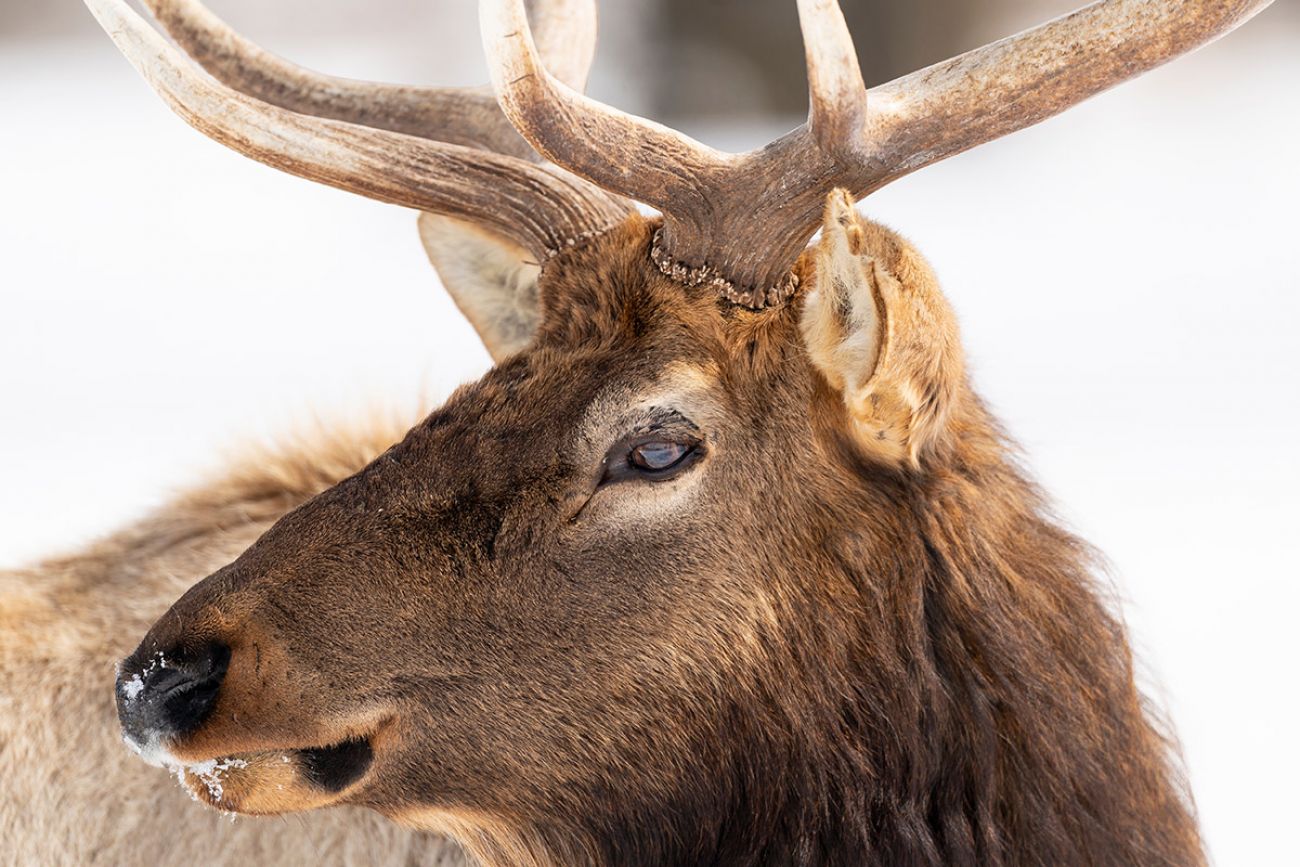Michigan scraps special elk hunt in January

LANSING — Michigan is scrapping its special January elk hunt because hunters are so successful at killing the animal during its regular seasons.
Members of the Natural Resources Commission unanimously on Thursday voted to eliminate the special hunt at its Thursday meeting, following testimony from wildlife officials who said the January hunt hasn’t been implemented since 2008 because hunters meet the annual harvest goal during the regular season.
- Daily trout limits in Lake Huron may be reduced due to overfishing
- DNR announces fishing regulations for Michigan’s 2022 season
“The reason for the hunt was if something compromised our harvest, we had the January hunt to fall back on, but we realize now if that was the case we could just come back the next year and provide more opportunities to play catch up,” said Chad Stewart, deer and elk biologist for the state Department of Natural Resources.
The optional hunting season was established 20 years ago, but Stewart said it’s a “quick turnaround” because the regular season typically ends in mid to late-December.
“It’s a once-in-a-lifetime opportunity and it’s a short turnaround so it’s not fair to expect them to be ready for a hunt in three weeks,” Stewart said.
The state estimates Michigan is home to about 1,280 elk. Last year, the DNR drew 260 out of 49,100 applicants to hunt elk. Stewart said hunters who are drawn generally use guides to find elk, and their success rate is generally 75 percent to 90 percent.
One hundred elk hunting licenses were awarded for the September and October hunting season and 160 licenses were awarded for the December hunt.
Elk may be hunted in the following counties: Antrim, Crawford, Oscoda, Alpena, Montmorency, Otsego, Presque Isle, Cheboygan and Emmet.
In other news, the Natural Resources Commission will consider changing the daily lake trout catch limit in northern Lake Huron, off the coasts of Mackinac, Chippewa, Cheboygan and Presque Isle counties at its May 12 meeting.
State anglers in that region, MH-1, overfished lake trout and splake per a 2000 consent decree with Native American tribes that sets fishing regulations and catch limits, so the DNR is recommending the daily catch limit from three to two fish.
The deal gives tribes 88 percent of the lake trout population in northern Lake Huron and 12 percent to non-tribal anglers. The ratio is reversed on the southern end of the lake: tribes get 5 percent of the trout, while state-licensed anglers get 95 percent.
The deal also calls for penalties if either party overfishes — and last year, state anglers exceeded their quota by 21 percent in northern Lake Huron, reeling in 68,518 lake trout, above the 56,782 limit.
The DNR’s recommendation would equate to a 28,000-pound reduction of lake trout, the limit was 68,000 pounds of lake trout and splake and the new regulations would reduce it to 40,000 pounds.
“It’s part of our duty to accept this recommendation because of the provisions of the consent decree but also important for us to ask questions for the long term because this is pretty demanding from the state’s perspective,” Natural Resources Commissioner David Nyberg said.
The DNR is not recommending reducing the daily take for biological reasons. Declining salmon populations in northern Lake Huron have driven more anglers to target lake trout but the DNR says the populations remain robust.
The state is currently negotiating a new consent decree with the Grand Traverse Band, the Bay Mills Indian Community, the Little Traverse Bay Band of Odawa Indians, the Sault Tribe of Chippewa Indians and the Little River Band of Ottawa Indians.
DNR fisheries biologist Seth Herbst said the regulations will not be finalized by the parties until April 26.
The department is proposing to offset the reduction of lake trout in northern Lake Huron by increasing the daily catch limit from three to four in the region MH-2 off the southern coast of Presque Isle County and Alpena County.
The DNR is meeting with the Lake Huron Citizen Fishery Advisory Council to discuss the proposed changes.
Michigan Environment Watch
Michigan Environment Watch examines how public policy, industry, and other factors interact with the state’s trove of natural resources.
- See full coverage
- Subscribe
- Share tips and questions with Bridge environment reporter Kelly House
Michigan Environment Watch is made possible by generous financial support from:
Our generous Environment Watch underwriters encourage Bridge Michigan readers to also support civic journalism by becoming Bridge members. Please consider joining today.
See what new members are saying about why they donated to Bridge Michigan:
- “In order for this information to be accurate and unbiased it must be underwritten by its readers, not by special interests.” - Larry S.
- “Not many other media sources report on the topics Bridge does.” - Susan B.
- “Your journalism is outstanding and rare these days.” - Mark S.
If you want to ensure the future of nonpartisan, nonprofit Michigan journalism, please become a member today. You, too, will be asked why you donated and maybe we'll feature your quote next time!






